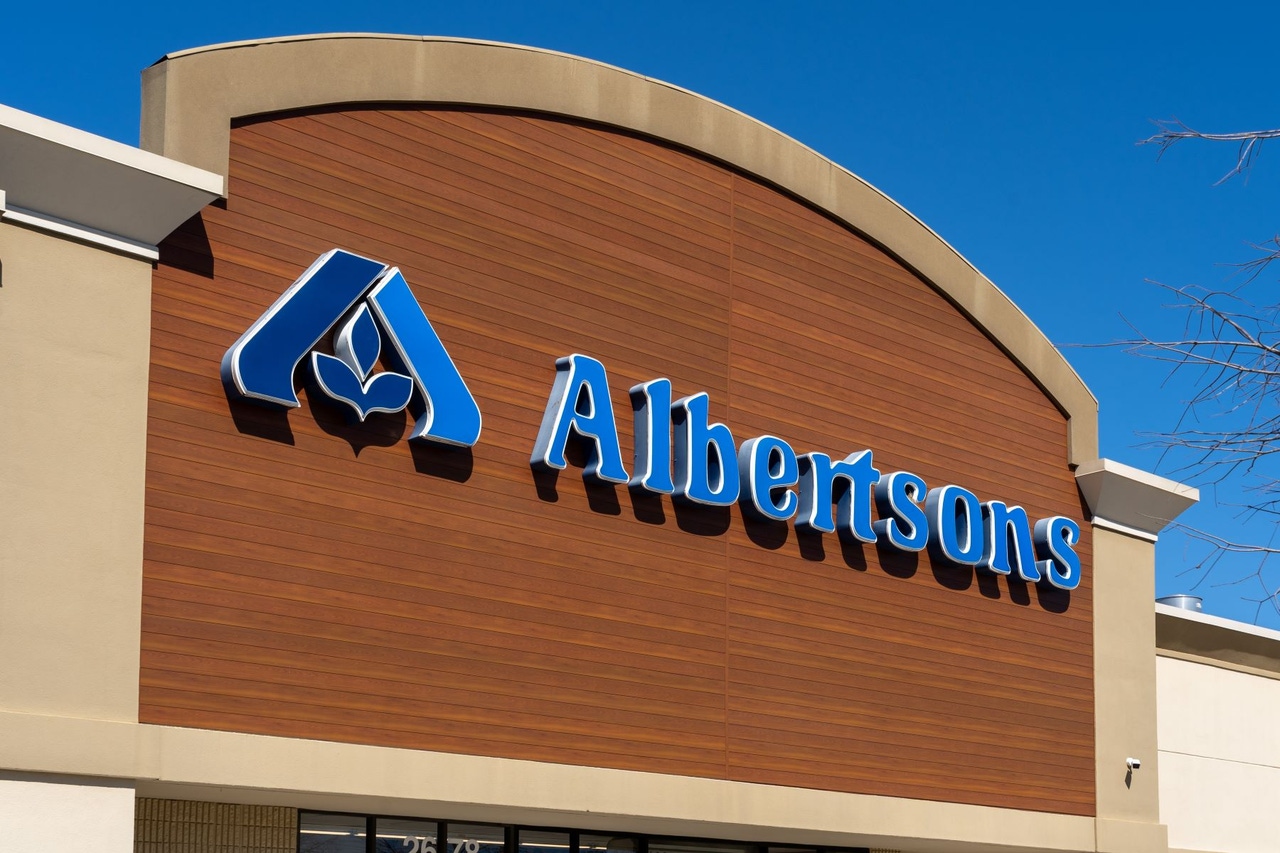Washington sues Albertsons to block its $4B shareholder payoutWashington sues Albertsons to block its $4B shareholder payout
The state’s attorney general said giving out the special dividend would “weaken Albertsons’ ability to continue business operations and compete” amid a proposed $24.6 billion merger with Kroger. Albertsons called the suit "meritless."

Washington Attorney General Bob Ferguson on Tuesday filed a lawsuit to block Albertsons from making its planned $4 billion payout to shareholders next week, according to a statement from his office. Albertsons announced the special dividend payout when it revealed plans earlier last month to merge with Kroger in a $24.6 billion deal.
Ferguson said he expects to file a temporary restraining order as soon as possible. If approved, Albertsons would be barred from making the payout while the lawsuit is ongoing.
“Paying out $4 billion before regulators can do their job and review the proposed merger will weaken Albertsons’ ability to continue business operations and compete,” Ferguson said in a statement. “Free enterprise is built on companies competing, and that competition benefits consumers. Corporations proposing a merger cannot sabotage their ability to compete while that merger is under review.”
Update: On Wednesday, three more states filed lawsuits against Albertsons to block the payout.
Last week, Ferguson joined the attorneys general of Washington, D.C., Arizona, California, Idaho and Illinois in calling for a formal investigation into the proposed Kroger-Albertsons merger, while also demanding Albertsons stop its $4 billion shareholder payout because going forward could limit Albertsons’ ability to operate and compete against Kroger.
Albertsons, which had planned to pay out the dividends on Monday, called the lawsuit "meritless" and without a legal basis to postpone or block the payout in a statement to WGB early Wednesday.
"It is not contingent on our merger with Kroger and is not in any way a condition to Albertsons Cos.’ or Kroger’s obligation to consummate the proposed merger –it will be paid regardless of whether the merger is completed," an Albertsons Cos. spokesperson said. "The allegation that this dividend will somehow hinder our ability to compete in the marketplace is also meritless. Given our financial strength and positive business outlook, we are confident that we will maintain our strong financial position as we work toward the closing of the merger. Additionally, payment of the special dividend will not hinder Albertsons Cos.’ ability to continue investing in our stores and technology to provide an even better shopping experience while we continue to operate as an independent company, and it will not impact the agreements that we have made with unions representing our associates to increase wages and benefits. "
In a letter reviewed by Bloomberg, Albertsons told the attorneys general that the special dividend payout is independent of the merger and cannot be canceled because of potential liability.
The Boise-based grocer told the AGs that not going through with the payout “would expose Albertsons to significant legal and financial liability” and that “investors of all sorts are acting in reliance” on the planned dividend.
The $4 billion exceeds Albertsons’ cash on hand, according to Securities & Exchange Commission filings noted by Ferguson. Albertsons had said it would pay for the dividend with its $2.5 billion in cash while borrowing the rest, according to the SEC.
Ferguson said he expects a hearing this week on his temporary restraining order motion and is requesting an oral argument.
“Paying out the $4 billion will cripple Albertsons’ ability to operate its stores and meaningfully compete with Kroger during the time before the deal closes and leave it in a weakened state if the deal subsequently falls apart,” Ferguson said in his lawsuit.
A Kroger-Albertsons merger would create a grocery giant. Combined, the two companies operate nearly 5,000 stores, 66 distribution centers, 52 manufacturing plants, 3,972 pharmacies and more than 2,000 fuel centers. The grocers employ 710,000 workers.
Cincinnati-based Kroger is the country’s second-largest grocer, by market share, behind Walmart. And Boise-based Albertsons ranks fourth, behind Costco. Combined, the new company would come closer to competing with retail giant Walmart.
Anticipating antitrust review, the companies said they are prepared to establish a subsidiary called SpinCo that would operate as a standalone public company with between 100 and 375 stores that had been divested in areas of overlapping retail operations.
In announcing the proposed merger, the grocers said SpinCo would “create a new, agile competitor with quality stores, experienced management, operational flexibility, a strong balance sheet and focused allocation of capital and resources to provide customers with continued value and quality service and associates with ongoing compelling career opportunities.”
UPDATE: This report has been updated with a statement from Albertsons.
About the Author
You May Also Like






